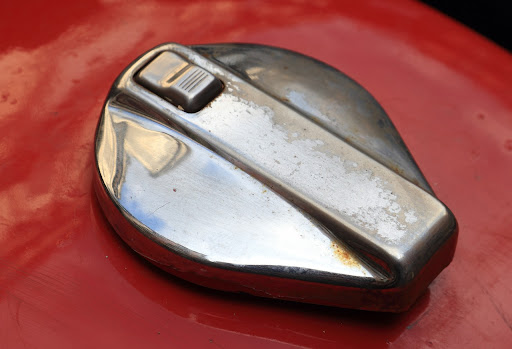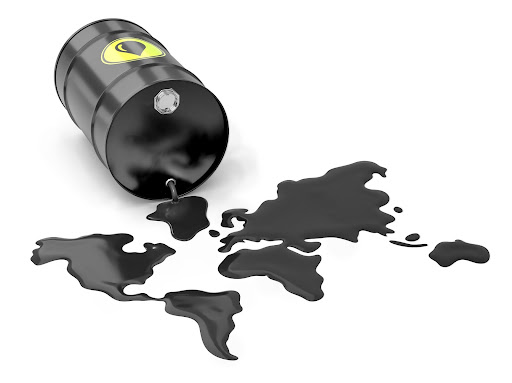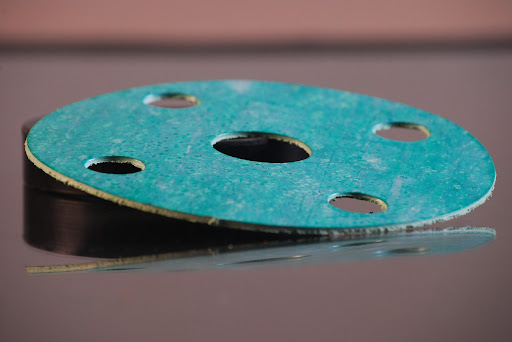To sign up for our daily email newsletter, CLICK HERE
An oil leak is one of the unfortunate things that could happen to your car. If left unattended, a small oil leak can result in a tyranny of problems. It may become more extensive, thus expensive to repair.
Oil leaks can make the engine cease to work. It may additionally lead to significant damage to the radiator and the HVAC system.
The following piece covers reasons for car oil leaks and how to resolve the issue.
Let us dive in.
Symptom of Oil Leaks
The most obvious way to determine if your car is leaking is using a dipstick to check the oil levels in the oil engine. Levels outside the minimum dipstick are shown by the lower pinhole, MIN, or crosshatching. If your oil level is lower than expected, act immediately.
Before the problem escalates and becomes worse, take your vehicle to a professional. Find a good car repair shop if you want your vehicle to stay in shape. They need to be excellent in maintenance processes, including oil change and fixing related oil leaks problems.
Depending on where you are, you can find excellent dealership shops with highly skilled technicians, mechanics, and repairmen. You can visit a Sun Toyota dealership shop near you. It doesn’t matter whether you are in Florida, New York, California, or wherever in the world.
Employees in car dealerships are highly trained and certified to perform different services.
How do you know if you have an oil leak? Here are signs that could indicate your vehicle siege.
This is the most obvious sign of an oil leak. You will notice a splatter underneath your vehicle. Depending on the intensity of the leak, you might see a small puddle or only a few drops.
Either way, having a spill beneath your vehicle signifies your engine oil is leaking. Thus, you should attend to it immediately.
Oil leaking from the valve sometimes falls on other engine parts. Since the parts become hot when driving, creating a burning oil smell. If you notice an acrid smell, that could be burning oil under your hood.
-
Check Engine Oil Light is On
If you notice the check engine oil light flashing on your dashboard, it’s a sign you could be experiencing an oil leak. Engine oil light is designed only to light up when the oil levels are too low. It is a perfect indicator for oil leaks.
If it turns off while driving when you turn on your car, go ahead and check any oil spills.
Engine oil works as a lubricator, filter, and coolant. It cools down the engine by flowing through various components. When an oil leak occurs, the oil level decreases, thus decreasing the cooling effect. This might cause overheating of the engine.
Smoke from engines results from different causes. Some include wiring faults, malfunctioning cooling system, and fluid leaks.
If you notice your engine smoking, stop your car at a safe spot. Turn off the engine, then let it cool for a while. Next, pop the hood to spot the trouble. Unless you see flames, don’t use the fire extinguisher.
If you’re looking for heavy duty cooling be sure to visit Natrad.
9 Reasons Your Car is Leaking Oil
Understanding the reason for a car leak would help you resolve that issue. You can easily explain it to a service provider and let them work on a solution. Hence it’s important to brainstorm the problem then act on a solution.
Here are some of the reasons your car is leaking.
1. Bad Oil Filter

A worn-out oil filter is one of the common causes of car oil leaks. Car oil filters usually filter any contaminants out of the oil to avoid causing any damage to your engine. They help the oil remain clear to prevent clogging or wearing the inside of the engine.
In the initial stages, most work as you intend. But, after spending several miles on the road, they start degrading from the use.
Also, when the oil is not changed for a while, the oil filter gets clogged. When the filter stops working, the oil starts leaking.
Sometimes, pressure from inside the engine might weaken the oil filter, making it lose or displaced.
You’ll have to correct or replace the oil filter to resolve the problem. You can do this at home or visit a dealership shop near you. Nonetheless, ensure it’s a trustworthy place to avoid getting more damage to your vehicle.
2. Loose or Broken Filler Cap

Loose or broken filler caps may result in oil leaks. It is easier to tell if this is the cause of the car oil leaking. You will notice oil puddles form quickly underneath your car or make a pool around the engine.
Fixing loose or broken filler caps takes only a few seconds. Readjust the filler cap by tightening it and ensuring it is not loose. If it refuses to stay in place, buy a new filler cap and attach this yourself.
3. Damaged Oil Pan
Any damage to the oil pan may result in oil leaks. The oil pan is a storage that collects oil when not in use. For instance, when the engine is turned off, and you are not driving. Oil leaks from here are rare as oil pans are tightly fitted.
Depending on the size of the crack, you can repair the damage yourself. This takes a couple of hours. First, you will have to drain all oil from the vehicle’s engine. Using a rag, clean the oil from the break, then scrub away the debris and dirt.
Clean the area being repaired before leaving it to dry. Apply cold welding compound and leave it to cure fully. Lastly, add the engine oil. Wait for around 15 to 24 hours before driving your vehicle again.
Alternatively, take your car to the mechanic and let them work on the problem. If you do not have a mechanic to go to, you will need to search for one in your area so you can use them as and when needed. There is a top rated auto repair in Nanaimo, that you can go to, just check and see if they can manage the make and model that you have.
4. Front and Rear Crankshaft Seals
The crankshaft is an internal engine component. Usually, it protrudes from both ends of the engine. The crank pulley mounted on the crankshaft is on the front of the engine. While on the rear is the flexplate or the flywheel.
The major cause of crankshaft leaking is wear and tear due to high mileage. Also, when there is too much oil in the engine, oil might leak from the crankshaft seal if there isn’t enough space for it.
If the seals aren’t installed properly, it can lead to oil leaks and a shortage of oils in different engine areas. When this happens, it inhibits your car’s ability to function appropriately.
A mechanic can inspect your vehicle to check if the cause of your car leak is a worn-out crankshaft seal or one that is defective. They can then proceed to repair it.
5. Too Much Oil

Sometimes the oil leak usually isn’t that big of a problem. When you notice a puddle of oil under your car and the dashboard engine oil light is not flashing, you could have poured too much oil into the engine resulting in an overflow.
Also, you could have spilled some oil when filing it up. If this is your problem, use a rag to clean up the spilled oil on the engine. Use a dipstick tube to extract excess oil. Voila! You get to solve the problem.
6.Oil Drain Plug
The oil drain plug lies at the base of the oil pan. You can access it from the underside of your car. Unfortunately, a loose oil drain plug is a common cause of oil leaks. It’s easy to spot the oil leak coming from here. You will notice oil around the oil plug.
Another symptom is a dirty or worn-out gasket. This often loosens the drain plug seal on the oil pan. You will have to replace or clean the drain plug to stop the leak.
Alternatively, if the cause of the leak is the drain plug not being tightened well, get an appropriately sized wrench to tighten the drain plug.
7. Leaking Oil Cooler
There exist two types of oil coolers. One is located in the car front and is air-cooled. The other one is located on the engine block, and it’s coolant-cooled. Vehicles have different oil coolers depending on the car and the engine type.
Most oil leaks result from coolant-cooled oil type. These oil coolers have seals against the engine block. They are additionally made from plastics that can easily crack, thus resulting in leaks.
There are different reasons why the source of your car leaking oil is from the oil cooler. Due to age, it can be worn.
Here are some signs to look out for:
- A dark or black cooling water expansion tap
- Milky or dark cooling water
- Loss of cooling water from the expansion tank.
Once you confirm the oil cooler is the reason for your car leaking oil, replace it. A mechanic would start by draining the cooling water. They would then dismantle the lines and hoses of the oil cooler before removing it and replacing it with a new one.
Never open the expansion tank for the cooling water before ensuring the engine is cold.
8. Broken Gasket

The gaskets are an integral part of any car engine. They transfer fluids, coolants, oils, and gas throughout the car. Also, a vehicle can have one or several gaskets, depending on the engine type. A V-6 or V-8 will have two valve covers. In a straight 4 or 6 cylinder engine, there is one.
Like the oil engine, they also degrade over time. The gaskets get hardened due to heat and pressure while developing cracks. Unfortunately, this weakens the seal they create.
Broken gaskets happen after several miles of the drive. Usually after 100,000 miles. A broken gasket problem would need a professional hand. They are more experienced and help you fix the leak.
9. Clogged Crankcase Ventilation
Crankcase ventilation ensures that car compression doesn’t cause overpressure inside the crankcase. When crankcase ventilation is clogged, overpressure can occur in the engine, resulting in an oil leak. The oil is trying to find its way out of the engine.
You can easily identify the problem by loosening the oil cap when the engine is sitting idle. There should be a slight underpressure when everything is working fine. When you open and find pressure, it could be the reason for clogged crankcase ventilation.
To resolve the problem, Clean the crankcase ventilation system.
Can you Drive a Car with an Oil Leak?
Driving a car with an oil leak is dangerous. Oil is a flammable liquid that can ignite when provoked. When the oil ignites, it can cause a fire outbreak that may burn your car.
Additionally, oil leaks can cause rubber hoses and seals to wear out prematurely, thus the need to replace them sooner than expected.
You can lose all the oil as a result of an oil leak. Low oil levels can seriously damage oil engines. Stop the car and consult a mechanic once you notice even the most minor leak.
How to Stop Oil Leaks
Regular proper maintenance and routine oil changes can reduce the chances of experiencing oil leaks. Accumulated oil can degrade the rubber horses and the seals used to make them wear out prematurely. It will additionally help prevent damage to the engine components.
It’s vital to clean control valves and crankcase ventilation hoses to keep a slight underpressure in your car’s engine. Overpressures can tear on the wheels, thus creating oil leaks.
There are also different special additives you can purchase, and they are effective in preventing oil leaks.
Wrapping Up
Several reasons contribute to cars leaking oil. Symptoms like oil spills, burning engine oil, and overheating engine indicate that your car has a problem. Once you notice a leak, identify its source to help you take the appropriate solution.
Depending on the intensity of the damage, you can rectify the problem yourself or take the car to a mechanic for repair.
Lastly, always act immediately once you notice a leak. You don’t want the problem to escalate and result in more damage.
To get more information about car smash repairs be sure to check out NRC Group.